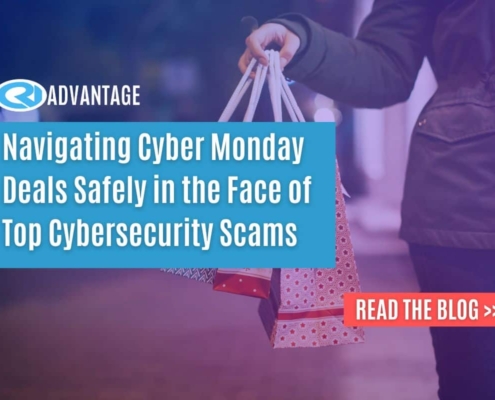 https://criadvantage.com/wp-content/uploads/2025/10/Workers-in-office-looking-at-technology.jpg
1250
2000
Abstrakt Marketing
/wp-content/uploads/2024/11/CRI-Logo-Transparent.-blue.png
Abstrakt Marketing2025-10-09 12:47:452026-02-28 08:03:30Uncovering the ServiceNow Zurich Release: What You Need to Know
https://criadvantage.com/wp-content/uploads/2025/10/Workers-in-office-looking-at-technology.jpg
1250
2000
Abstrakt Marketing
/wp-content/uploads/2024/11/CRI-Logo-Transparent.-blue.png
Abstrakt Marketing2025-10-09 12:47:452026-02-28 08:03:30Uncovering the ServiceNow Zurich Release: What You Need to KnowMore kids are eLearning now than ever before.
Since the start of the C19/SARS A pandemic a few months ago, more than 11,000 new website domains have popped up related to the COVID-19 virus. I submit that in today’s internet environment, new websites are equal to new targets for malicious behavior. With the undeniable surge in the spread of the pandemic, workers will be staying home, and students are sure to follow. Keeping kids safe online is priority number one for parents.
Ransomware Threats
My 85-year-old mother-in-law actually got a ransomware threat which she was told she must pay a ransom. In Bitcoins of all things. What are the odds she even knows how to use a Bitcoin? Or what a Bitcoin is for that matter?
The Bitcoin foible notwithstanding, the story the ransomware hackers presented, was authentic enough to get Grandma to nibble. She was scared and confused. Rightfully so. Of course, grandma called the family help-desk, (me), and we mitigated the threat. She was a bit shaken for a spell, to say the least.
The experience had me thinking: If our seasoned, golden years generation can be scammed, how vulnerable are our children?
With classes returning returning home in increasing numbers for the fall session, the hackers will be out in force for sure. We have to protect our young people. How can we take measures that give us comfort in these peculiar and uncertain times?
Keeping Kids Safe Online
Kids today are extraordinarily vulnerable – albeit quite a tech-savvy cohort. They are vulnerable because of exactly that reason, their technical acumen. Let’s face it, many kids think because they can create their own website on WIX in half a day, they’ve become immune to the CyberSecurity threats that are looming. They are a computer technician man.
I am observing that our kids are over confident because they have not been fully educated on the severity and ramifications of a CyberSecurity attack. The complexity and power of technology today is hard enough for the subject matter expert to master, let alone youngsters who just want to have fun. Keeping kids safe online is a huge responsibility and it must be taken seriously.
My 11-year-old niece can show me the features on my iPhone for increasing productivity. She can change settings on my laptop and iPhone I didn’t even know I had on these devices. However, the fact remains, she is not all that afraid of being hacked.
Lets call my niece Sugar Beet to protect the innocent. The Beet recently had her Instagram account hacked, and she simply said, ‘I’ve been hacked’ and she just needed to change her credentials. She thought that was the end of it. (More on this in an upcoming post)
Even in light of the COVID-19 crisis, the media has remembered to insert some brief story lines about internet scams. The warnings they are providing is how security is a threat to all of the new people becoming part of the remote workforce. Moreover, in the case of students, young people are joining the remote-student home-school demographic and this is the perfect storm that delivers additional potential victims of cyber crime.
Sure the media has been providing how-to tips and tricks on to protect all of us. Of course, there are the social proof stories about the unsuspecting people who have just been hacked and what to do to make sure you or your kids are not the next victim. The media just does not go in depth enough to help the average person or the young student.
Phishing, Malware and Ransomware Attacks are Not Being Reported
The issue remains that with the focus on COVID-19, and the plethora of phishing, malware, and ransomware attacks are not being reported. People and the media are simply distracted by the pandemic and election news. There is simply not time to pay attention to the warnings that are out there. This is a frustrating notion. But the reality is that bad people take advantage of good people in bad times.
How Parents can Keep Kids Safe Online
For parents and guardians who are looking for guidance to protect their kids at home: It is all about awareness and being extraordinarily careful. Coach the kids on sensitive information handling as if you were coaching them about not taking rides from strangers.
Numerous educational institutions have greatly improved their eLearning formats. Children stay home and learn by leveraging secure online education software platforms and forums. This is a fantastic opportunity for kids as they get to leverage the latest in technology. But, even with security progress, these environments carry significant potential risks. The cyber criminal community never stops evolving.
Be careful when you open attachments.
As such, we are reminding everybody to be extra cautious with email links and attachments, unfamiliar solicitations and/or websites, and anyone asking for sensitive information via inbound phone calls or email. If someone really needs to get information from you or your kids, you can reach out to them.
CRI Solutions can help!
If you are an educator, IT Support Executive or parent concerned about keeping kids safe online and you would like to have a chat about how you can better protect yourself, reach out using the button below!
Share This Post
More Like This
 https://criadvantage.com/wp-content/uploads/2025/10/Workers-in-office-looking-at-technology.jpg
1250
2000
Abstrakt Marketing
/wp-content/uploads/2024/11/CRI-Logo-Transparent.-blue.png
Abstrakt Marketing2025-10-09 12:47:452026-02-28 08:03:30Uncovering the ServiceNow Zurich Release: What You Need to Know
https://criadvantage.com/wp-content/uploads/2025/10/Workers-in-office-looking-at-technology.jpg
1250
2000
Abstrakt Marketing
/wp-content/uploads/2024/11/CRI-Logo-Transparent.-blue.png
Abstrakt Marketing2025-10-09 12:47:452026-02-28 08:03:30Uncovering the ServiceNow Zurich Release: What You Need to Know https://criadvantage.com/wp-content/uploads/2025/07/A-Beginners-Guide-to-Agentic-AI.jpg
1250
2000
Abstrakt Marketing
/wp-content/uploads/2024/11/CRI-Logo-Transparent.-blue.png
Abstrakt Marketing2025-07-08 06:41:372026-02-28 08:03:36A Beginner’s Guide to Agentic AI
https://criadvantage.com/wp-content/uploads/2025/07/A-Beginners-Guide-to-Agentic-AI.jpg
1250
2000
Abstrakt Marketing
/wp-content/uploads/2024/11/CRI-Logo-Transparent.-blue.png
Abstrakt Marketing2025-07-08 06:41:372026-02-28 08:03:36A Beginner’s Guide to Agentic AI https://criadvantage.com/wp-content/uploads/2025/04/Smiling-male-employees-discussing-cooperation-planning.jpg
1250
2000
Abstrakt Marketing
/wp-content/uploads/2024/11/CRI-Logo-Transparent.-blue.png
Abstrakt Marketing2025-04-04 09:19:322026-02-28 08:03:38How ServiceNow Supports Scalable IT Solutions for Growing Businesses
https://criadvantage.com/wp-content/uploads/2025/04/Smiling-male-employees-discussing-cooperation-planning.jpg
1250
2000
Abstrakt Marketing
/wp-content/uploads/2024/11/CRI-Logo-Transparent.-blue.png
Abstrakt Marketing2025-04-04 09:19:322026-02-28 08:03:38How ServiceNow Supports Scalable IT Solutions for Growing Businesses https://criadvantage.com/wp-content/uploads/2024/12/Blog-Format-16-1-1.jpg
800
1200
Nate Riggins
/wp-content/uploads/2024/11/CRI-Logo-Transparent.-blue.png
Nate Riggins2024-06-25 18:20:492026-02-28 08:03:455 Signs Your Business Needs a Virtual CISO
https://criadvantage.com/wp-content/uploads/2024/12/Blog-Format-16-1-1.jpg
800
1200
Nate Riggins
/wp-content/uploads/2024/11/CRI-Logo-Transparent.-blue.png
Nate Riggins2024-06-25 18:20:492026-02-28 08:03:455 Signs Your Business Needs a Virtual CISO
CRI Advantage Honored as ServiceNow’s Consulting and Implementation Partner of the Year – Premier Segment, Americas Region
CRI, Press Releases https://criadvantage.com/wp-content/uploads/2024/12/Blog-Format-16.jpg
800
1200
Nate Riggins
/wp-content/uploads/2024/11/CRI-Logo-Transparent.-blue.png
Nate Riggins2024-02-14 04:50:572026-02-28 08:03:462024 Valentine’s Day Scams
https://criadvantage.com/wp-content/uploads/2024/12/Blog-Format-16.jpg
800
1200
Nate Riggins
/wp-content/uploads/2024/11/CRI-Logo-Transparent.-blue.png
Nate Riggins2024-02-14 04:50:572026-02-28 08:03:462024 Valentine’s Day Scams https://criadvantage.com/wp-content/uploads/2024/12/Blog-Format-13-1-1.jpg
800
1200
Nate Riggins
/wp-content/uploads/2024/11/CRI-Logo-Transparent.-blue.png
Nate Riggins2023-12-01 00:30:482025-01-09 12:53:30Top 5 Cybersecurity Predictions for 2024
https://criadvantage.com/wp-content/uploads/2024/12/Blog-Format-13-1-1.jpg
800
1200
Nate Riggins
/wp-content/uploads/2024/11/CRI-Logo-Transparent.-blue.png
Nate Riggins2023-12-01 00:30:482025-01-09 12:53:30Top 5 Cybersecurity Predictions for 2024 
CRI Advantage Achieves Recertification for ISO 27001:2022, ISO 9001:2015, and ISO 20000-1:2018
CRI, Press Releases https://criadvantage.com/wp-content/uploads/2024/12/Blog-Format-12-1-1.jpg
800
1200
Nate Riggins
/wp-content/uploads/2024/11/CRI-Logo-Transparent.-blue.png
Nate Riggins2023-11-21 21:48:232026-02-28 08:03:46Navigating Cyber Monday Deals Safely in the Face of Top Cybersecurity Scams
https://criadvantage.com/wp-content/uploads/2024/12/Blog-Format-12-1-1.jpg
800
1200
Nate Riggins
/wp-content/uploads/2024/11/CRI-Logo-Transparent.-blue.png
Nate Riggins2023-11-21 21:48:232026-02-28 08:03:46Navigating Cyber Monday Deals Safely in the Face of Top Cybersecurity Scams
ServiceNow IT solutions tailored to your industry-specific needs.






